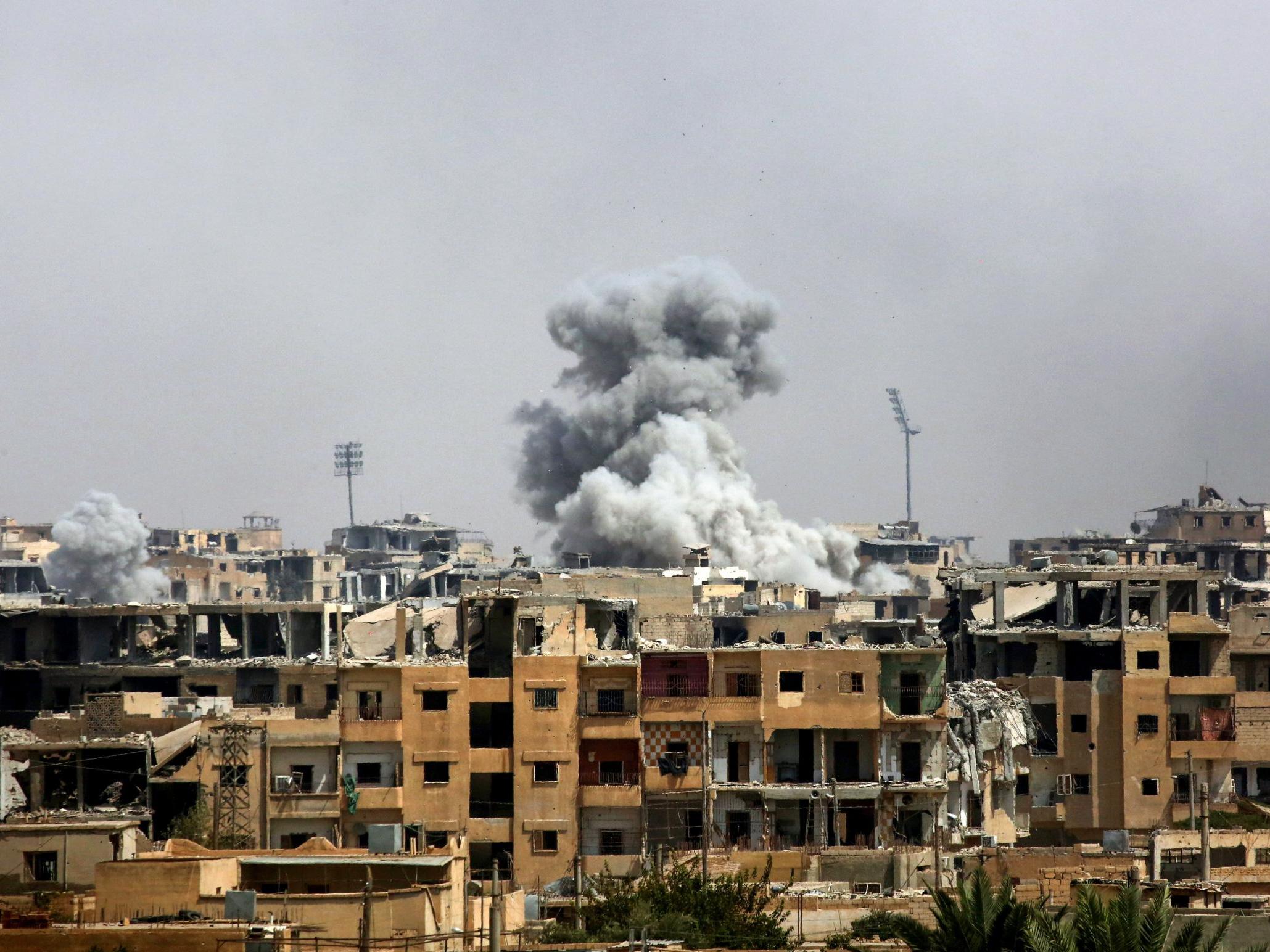UK government does not know how many civilians killed in Syria and Iraq airstrikes, minister admits
Minister warns of a 'direct link' between civilian deaths and terrorist radicalisation

The British government does not know how many civilians have been killed in its bombing campaign against Isis, the armed forces minister has admitted.
Mark Lancaster comments came after the Ministry of Defence was heavily criticised for official casualty estimates that claimed only one civilian had died alongside more than 4,000 Isis militants in RAF airstrikes across Syria and Iraq.
He told the Defence Committee it was “not our position that there has only been a single civilian casualty as a result of our military action”.
He added: “What we are saying is that we only have evidence of what we believe to have been a single civilian casualty,” he added. “That is a rather different position.”
Mr Lancaster said there were “challenges” verifying the true figure because of the lack of British “boots on the ground” in targeted Isis strongholds.
“It is difficult to prove exactly what has happened as a result of a strike, but that doesn’t mean that we are remotely complacent in our approach,” he added.
“We think that is absolutely vital [to avoid civilian casualties] because potentially there is a connection between the causing of civilian casualties and potential further radicalisation. There is a direct link there … if we were to be reckless with the use of military force it would be entirely counter-productive.”
Mr Lancaster said British forces use pre-targeting intelligence, then monitor people’s movements at the location of strikes and assess the result afterwards.
The RAF has carried out at least 1,700 of 34,000 airstrikes launched by the US-led coalition against Isis, across Syria and Iraq since August 2014 – around 5 per cent.
US Central Command (Centcom) had confirmed the deaths of 1,257 civilians by the end of February, but monitoring group Airwars puts the toll at between 7,500 and 12,300 civilians.
“The Coalition will continue to work with partner forces to deny Daesh [Isis] any physical space and influence in the region as well as deny Daesh the resources they need to resurge,” a Centcom spokesperson said last week. “We continue to employ thorough and deliberate targeting and strike processes to minimise the impact of our operations on civilian populations and infrastructure.”

Isis has used images of dead men, women and children in propaganda calling on supporters to launch global terror attacks, seeking to present airstrikes on its territories as a war on Muslims.
Following a speech by late spokesman Abu Muhammed al-Adnani in 2014, many claims of responsibility issued by the terrorist group for atrocities have said they were “in response to the call to target citizens of Crusader countries that participate in the coalition against the Islamic State”.
A former London postman who joined Isis told The Independent that the US-led coalition's bombing campaign was giving Isis "more recruits, more men and children who will be willing to give their lives because they've lost their families".
Ben Wallace, the security minister, said that although military action was “certainly a factor” in the radicalisation of some Isis-inspired terrorists who have plotted attacks in the UK, other issues like wider foreign policy and Islamophobia were also exploited.
“We haven’t seen an increase in the last 24 months of people being radicalised in our communities as a result of the military campaign,” he told MPs. “We see the increase in threat, where it comes, from the remaining Isis and al-Qaeda voices using the internet to recruit, but not really as a result of British actions overseas.”
Mr Wallace added that the government was fighting extremist narratives by demonstrating that “what it does is proportionate and necessary, and follows the rule of law”.
The committee was told that military action seeing Isis lose all of its major strongholds in Iraq and Syria had resulted in an 80 per cent reduction in propaganda output.
Chris Felton, head of the Joint International Counter Terrorism Unit (JICTU), said Isis’s ability to directly contact vulnerable people in the UK had been “dramatically reduced”.
“The narrative of success of the caliphate has been reduced, which is also a factor in the attractiveness of Isis as an organisation,” he added.
But the government recognises that “ultimately a military solution isn’t going to defeat” the terror threat posed by Isis, Mr Lancaster told the committee, warning that displaced jihadis may regroup elsewhere as their ideology continues online.
“We can certainly go to a certain point where we do contain Isis and the geographical defeat is a definite step in the right direction,” the minister said. “But are we going to delude ourselves that we have removed all of the threat to the UK because now nobody is a foreign fighter still in Syria? Of course we haven’t.”
Join our commenting forum
Join thought-provoking conversations, follow other Independent readers and see their replies
Comments
Bookmark popover
Removed from bookmarks